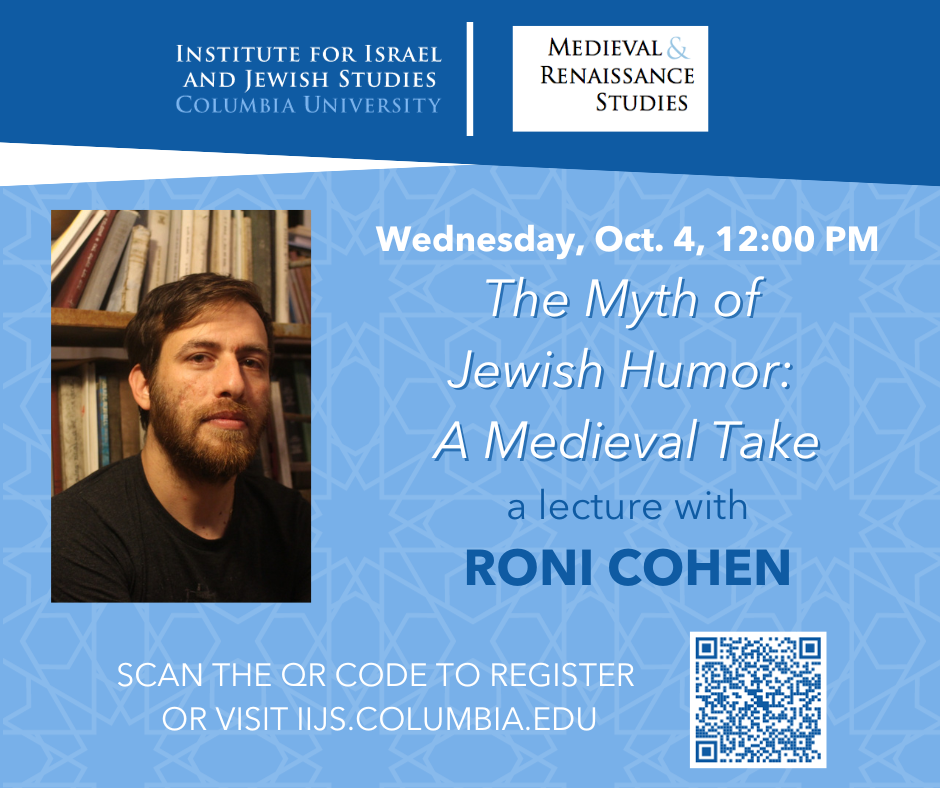The existence of a distinctive Jewish sense of humor is a widely recognized phenomenon, particularly in the 20th and 21st centuries. This unique ethos is often associated with early 20th-century Yiddish literature, theater culture, as well as Jewish-American comedians and entertainers. However, it is important to note that humoristic pieces also existed in the early modern and medieval times within Jewish communities. In this talk, we will explore a specific genre of humorous literature that gained popularity in Europe during the late Middle Ages: parodies of the Talmud and the Hebrew Bible. By delving into the historical background of this literary phenomenon, we will suggest new insights into its place within the broader history of Jewish humor.
Dr. Roni Cohen is a Fulbright postdoctoral fellow at Columbia University. His Ph.D. dissertation, titled "Carnival and Canon: Medieval Parodies for Purim," was written in the Jewish History department at Tel Aviv University. Roni's research focuses on European Jewish popular culture in the late Middle Ages and early modern period, as well as the relationships between textual pieces and communities. In his current project, "In Search of the Early Modern Earworm," Roni maps and analyzes short textual pieces that were added by scribes and book owners in the margins of late medieval and early modern Jewish manuscripts.

